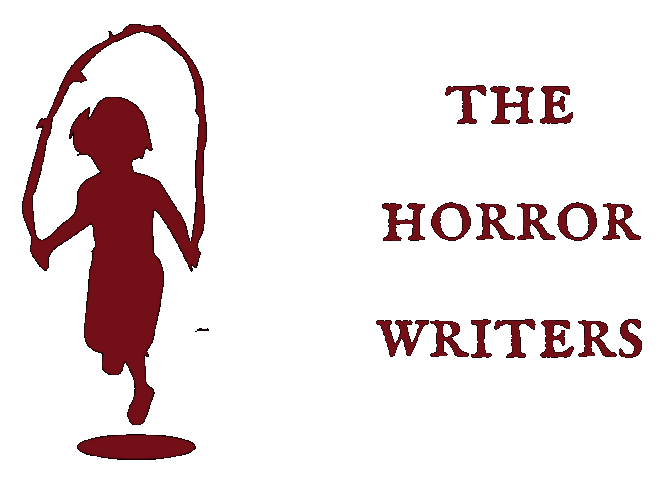How long have you been writing for?
I started writing and illustrating short stories when I was a little kid. I also kept journals documenting everything in my life, which was not very interesting but that didn’t stop me from thinking every moment of life is important. I think writers have an innate compulsion to process what they see in the world through writing. Humans learn through stories and writers are the record keepers of the evolution of the human psyche.
What is it about horror that made you think ‘This is the genre for me’?
I actually didn’t choose horror. I wrote a book series based on a nightmare. I didn’t know where it fit, if anywhere. Then other readers and reviewers began to refer to it as horror. Still, it’s not like mainstream horror really. I think it’s more like psychological horror or dark fiction with gothic elements. Now that I know where I more or less belong, I’m going to explore horror more.
Any tips for combatting writer’s block?
Sometimes if I write through it, I can get wade through the crap and get back to the bones of the story. On the other hand, sometimes it’s best to just walk away and do something totally unrelated. Writers tend to be reclusive and live in their own world, and believe it or not, it helps to go out and do something with real live human beings. Scary. I know, but different activities and different people give your mind a rest from actively trying to work everything out. Then when you come back to your work-in-progress, your subconscious usually has figured out the problem while you’ve been otherwise occupied.
Any rituals you have before starting a new story?
I like to build a playlist in Spotify that I can listen to before I write. I may or may not dance around my office in my pajamas before sitting down at my desk. I also like to make videos to get me into the zone. It’s a great way to keep focused on your theme. Just make sure that the creation of your playlist or video doesn’t turn into a tool for procrastination.
How do you handle character creation? I find using Dungeons and Dragons character sheets helpful but it’s fun to see the many ways other people go about this.
Dungeons and Dragons character sheets are a brilliant idea. My characters usually come from dreams or an amalgamation of an actor who recently impressed me, a person I know or used to know, and a facet of my own personality that wants to make a performance.
Any projects coming up (or currently out) you’d like to share with us?
I’m currently working on a story for Project 13Dark, a unique Indiegogo dark fiction project created by Joseph Sale that showcases both the written and visual artwork of some of this century’s greatest creatives (you can see the video for it on my YouTube). I’m also working on a few short stories I plan to pitch around to indie lit mags. I’m taking a break from novels for a little bit.
How can we support your work?
Naturally, the best way to support indie authors is to buy their books and leave reviews. My current offering is The Sick Series. It’s a collection of three novellas about a woman whose very sick husband is not as innocent as he seems. They are easy to enjoy and digest (though palatable for everyone). Amazon http://christawojo.com/amazon
You can support by checking out Project 13Dark and helping to fund our next issue.
If you have a book review blog or would like me for an interview or guest post, hit me up. I’m a big believer in community and I love to work with other horror and dark fiction authors.
You can contact me on social media.
Website ChristaWojo.com
Facebook http://facebook.com/WebbellaChrista
Twitter http://twitter.com/christawojo
Instagram https://www.instagram.com/christawojo/
Any advice to people just starting out in their writing careers?
Don’t be afraid of yourself. Especially when you’re writing horror, you’ll be surprised what comes out of your mind. You think, “should I be allowed to roam free among the general public?” I’ve been frightened and disgusted by parts of my books. Everyone always asks me, “how did such a nice girl write such a sick book?” And I shrug because I don’t know. I can’t tell you where exactly these ideas come from. But, like I said in the answer to the first question, I’m processing whatever I absorb from the world around me. I’m documenting the human psyche. I’m not going to try to shape it into something that everyone will be comfortable with. As a writer, if you hold back, if you’re not true and honest, your book will be flat. It might be really good, but it won’t give people that punch-in-the-gut reaction.
Be brave, dig deep, and go all out. As we say here in Panama, do it con cojones (with balls).
—
Christa (Wojo) Wojciechowski is the author of The Wrong David, The Sick Series, and is working on a series called The Sculptor of New Hope. Her characters explore existential turmoil, mental illness, and the complexity of romantic love. She uses her stories to compare the dark, carnal nature of humanity with its higher qualities of creative expression and intellectualism.
Christa currently resides in the mountains of Panama with her husband and a house full of pets. She works as a freelance digital marketer and helps thought leaders, podcasters, and fellow writers develop their marketing platforms. Christa enjoys foreign movies, yoga, wine, and rambling around in the cloud forests near her home. Most of all, she’s passionate about books and writers, and loves discussing them on social media.




